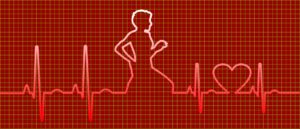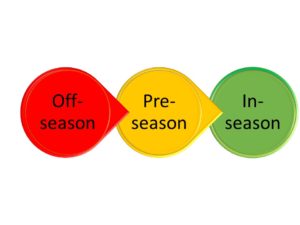Summary
- Exercise is one of the most important aspects of our lifestyle for health and well-being
- The volume and intensity of exercise you aim to achieve is hugely dependent on your personal goal
- Your nutrition should be aligned to the volume and intensity of exercise you complete each day
Exercise is a core element for physical and mental health. People often associate exercise with fat loss and physical appearance while the benefits go far beyond what we can visibly see! Appropriate levels of exercise helps to prevent lifestyle related disease, maintain our energy levels, boost our mood, lower stress levels and help to increase our self-esteem. It also plays a vital role in helping us complete physical and mental tasks so its role in our daily life is simply essential.

How much and what type?
While everyone needs to exercise for their health, the minimum amount being 150 minutes of physical activity per week, there is a personal level and intensity that different people exercise at. The World Health Organisation (WHO) recommend the following types and amount of exercise to improve cardio-respiratory and muscular fitness, bone health, reduce the risk of non communicable disease NCDs and depression:
Adapted from the World Health Organization (WHO) Physical Activity and Adults recommendations for exercise
Sports performance
For most people with a focus on health and well-being the most important thing is to get sufficient levels of exercise. In the context of sports performance there are a wide number of other core factors to consider such as the sport and performance goal.

The two core exercise components of an athletes training program are aerobic and resistance training which are designed to make an athlete both fit, strong, powerful and to reduce injury risk. This training program is a part of a holistic strategy to achieve peak performance in competition and is highly personalised to each athlete.
Periodised Training and Nutrition
For most athletes, training will be periodised into three key macro blocks. The goal, frequency, volume and intensity of an athletes training program will depend heavily on which block of the season they are in. The athletes nutrition will also be specific to this phase. An athletes weekly and daily schedule is considered their ‘micro schedule’ and that is organised depending on the performance focus of the week.


Regardless of whether you are an elite athlete or you are just aiming to maintain optimum health and perform your daily tasks, nutrition and sleep are essential elements for getting the most from your exercise program. The appreciation of where nutrition fits as part of an athlete’s priorities has drastically increased over recent years. We have moved a long way from beliefs like ‘it doesn’t matter what athletes eat or drink when training’, to athletes now eating the precise amounts of foods and fluids at specific times for their individual goals and exercise schedule. This can be called the performance fueling routine or strategy. It is highly individual and based on the time you aim to perform and recover. It is critical to understand that each meal must fit as part of that routine and no one meal is more important than the routine itself. They all work together to achieve the best possible performance outcome.

We understand how critical it is to align your exercise, well-being and performance goals with your nutrition and food choices and for that reason we have made the process of eating the right foods at the right times as simple as possible!
Regardless of whether you are an athlete or a non athlete you have different energy needs on different days and it is for that reason we have chosen to split recipes into 3 main categories on the website.
Recipes for Exercise Days
Recipes for Rest Days
Recipes for Intensive exercise days or competition
Click here for the recipe page








